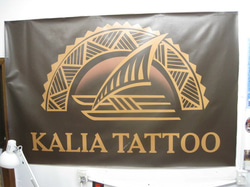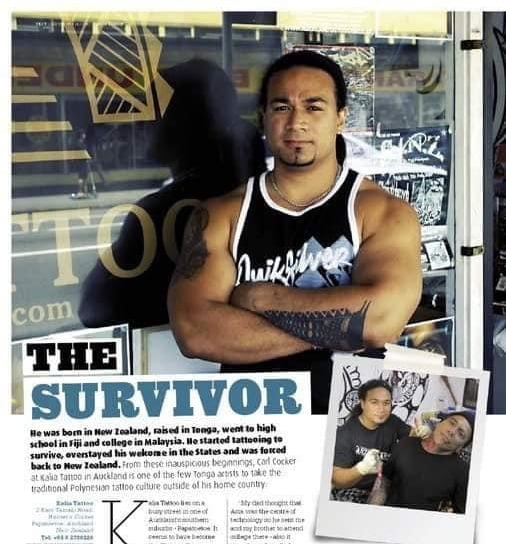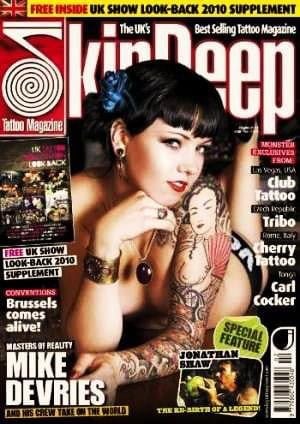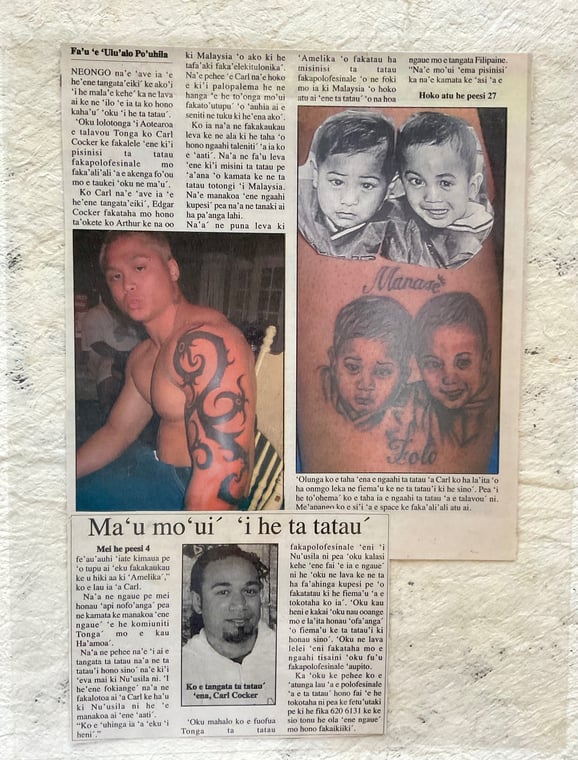Carl Cocker: The First Professional Tongan Tattoo Artist | TVNZ Networks— Tagata Pasifika Documentary (2002)



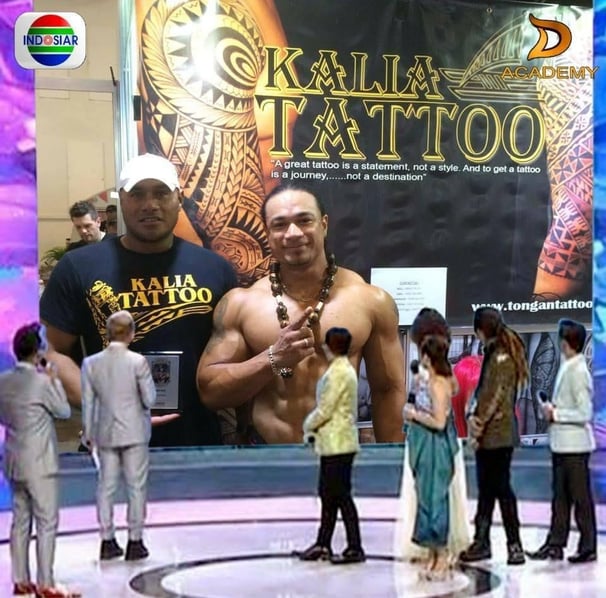



Step back into the early 2000s with this historic Polynesian Pacific Islands documentary segment from New Zealand TVNZ Network's Pacific News Tagata Pasifika, featuring 21-year-old Carl Cocker—the youngest Polynesian tattoo artist at the time—marking the beginning of a global Tongan tattoo renaissance.
At a time when Polynesian tattooing was dominated by Samoan, Māori, RaroTonga Mangaia Cook Islands, Tahitian, Marquesan, and Hawaiian tattoo artist masters, Carl Cocker aka KALia broke through as the first professionally recognized Tongan tattoo artist in New Zealand and across the Pacific regions and worldwide. https://youtu.be/DSipc5t_4Gg?si=AQcirM4r2ASNYb0Y
This rare 2002 documentary footage captures Carl Cocker’s rise among legendary Samoan tattoo tufuga tatau, Maori tattoo tamoko, Tahiti tatouage, Hawaiian tattoo kakau, and Marquesan tattoo patutiki tatouer —an era when "Tongan tattoo" was unknown as a household and in the professional scene. https://tattoonesia.blogspot.com/2008/02/
By 2006, Carl Cocker was not only the first Tongan tattoo artist to represent Tonga at the prestigious Tattoonesia Tatau i Tahiti Polynesian Tattoo Convention , hosted by the Tahiti Government and Tourism Board—but he also won 1st Place, coming just behind Japanese tattoo artist Shige. https://youtu.be/WNfzL76k0c8?si=W1n7yC4LZLU_lu00
This video—later replayed and distributed by Coconet TV in 2015—marks the beginning of a 20+ year journey. Carl Cocker continues to lead the Tongan tattoo revolution, blending ancestral storytelling with modern mastery, and has paved the way for a new generation of Polynesian artists.
thecoconet.tv is a hub for Pacific Islands moving image content online, It was funded by New Zealand NZ On Air https://www.nzonair.govt.nz/watch-and-listen/
👉 For media inquiries, press interviews, or documentary collaborations, please contact us here: kaliatattoo25@gmail.com

The Mission to Revive Tongan Tattoo: 20+ Years of Cultural Revolution
Since the early 2000s, Carl Cocker—founder of Kalia Tattoo Studio in Auckland, New Zealand and later in Australia—has led a bold mission to revive and restore Tongan tattoo (tatatau) art as a vital part of Pacific Island Tongans cultural identity.
In 2002, Carl’s wife, Janet Hopoi-Cocker, officially registered the name Kalia Tattoo and tongantattoo.com world wide web domain name, marking the beginning of a cultural revolution in Polynesian tattoo culture.
This featured video captures a powerful moment in 2014 when Carl invited Sua Suluape Peter—the son of Sua Alaiva‘a Petelo Suluape and nephew of the legendary Sua Paulo Suluape—to Kalia Tattoo Studio in Papatoetoe, Auckland. https://youtu.be/8O4DhXclU0Q?si=e59Kc17ulKar8r-t
In this sacred session, Peter Suluape tattooed both Carl and his wife Janet in honor of their dedication to Pacific tattoo revival. No Samoan tattoo pe‘a or malu was requested or performed but a Tongan tattoo art on Carl's thigh and a Samoan tattoo art on her leg both using traditional authentic art of Tonga and Samoa.
Carl and Janet, out of respect for Samoan tatau protocols, does not use traditional Samoan tools, knowing full well that only tufuga of Samoan lineage may carry that right.
Raised in Tonga, and Fiji, Carl and his brother, King ‘Afa were taught the value of honoring sacred boundaries. https://www.kingafa.com/
Our mission has always been to revive authentic Tongan tattooing, not to replicate Samoan ceremonies. Despite Janet Hopoi Cocker’s partial Samoan ancestry—her grandmother migrated from Samoa to Tonga during the Samoa civil war—we never crossed into ritual spaces reserved for tufuga tatau families. Instead, we focused on preserving Tongan art, symbolism, and traditional protocols with the same spiritual seriousness. https://youtu.be/AiBnBjkcmOI?si=bxJOYipqxFntqaOE
Carl Cocker's journey included a mentorship at Moko Ink, the first Māori and Polynesian tattoo studio in New Zealand, under Inia Taylor III, from 2003–2006.
It is important to honor the pioneers who helped bring Polynesian tattoo culture to the global stage. Inia Taylor III, a respected Māori tā moko master and founder of Moko Ink, served as the Assistant Art Director for the landmark New Zealand film Once Were Warriors (1994). This powerful cinematic work was the first international feature film to expose audiences to Polynesian tattooing—specifically Māori tā moko—on VHS and DVD, long before the era of streaming platforms. The film played a pivotal role in raising awareness of indigenous identity, trauma, and cultural survival. For young Polynesians and emerging tattoo artists, it serves as a reminder that our ancestral marks have long carried stories of strength, resistance, and pride. Inia Taylor’s artistic contributions both onscreen and in real life continue to influence the Polynesian tattoo revival across Aotearoa and the Pacific diaspora. https://youtu.be/N0-Q3ChKcfE?si=LcipvqbJRDBdcIfM
There, we studied Māori tattoo art of tā moko and puhoro, Cook Islands tattooing from Mangaia and Rarotonga, and respectfully observed Samoan tattoo art of tatau and ceremonies led by the Suluape family. Though we witnessed sacred rituals, we never claimed them as our own. https://youtu.be/Gq8iLrMWBh4?si=n8lJr904ynGnuBdT
At a time when tattooing in Tonga was considered outlawed—linked to rebellion and criminality—we began to reframe tattooing as a form of cultural pride and ancestral storytelling. Over the past 20 years, Tongan tattoo has transformed into a respected Tongan cultural art, now embraced by church leaders, Tonga Government officials, Nobles, Royal family, professionals, educators, and Pacific Island communities worldwide.
For many Tongans abroad—especially those unable to return home due to illness or distance—Tongan tattoo has become a living inheritance (tofia), a sacred expression of lineage, remembrance, and pride. We built this legacy not for fame, but for future generations.
This 2014 video of Sua Suluape Peter tattooing at Kalia Tattoo stands as a rare and historic moment of Pacific unity, cultural respect, and mutual admiration.
🔥 Suppressed History: The Banned of Tattoo; Tatatau in Tonga by TaufaaHau King Tupou I
The ancient practice of Tongan tattoo (tatatau) and Samoan tatau was officially banned in the Kingdom of Tonga under the reign of King TaufaaHau Tupou I, who issued the 1839 Vavaʻu Code of Laws. Contrary to popular belief, this ban was not due to Christian missionaries—it was a royal decree by TaufaaHau, later known as King George Tupou I, who sought to restructure Tongan society under a modern legal framework. The sacred tatau rituals brought to Tonga by Samoan migrants and Samoan clans integrated into the Tui-Tonga, Tui HaaTakaLaUa, and Tui-KanokUpolu dynasties were no longer permitted. This marked a historical turning point where tattooing in Tonga was suppressed forbidden as in the Tongan language tapu aka tabu.
Carl Cocker’s own lineage ties directly to this pivotal era. His paternal ancestor, Joshua Cocker, arrived in Tonga from Britain in 1860 with his wife and two sons. Joshua Cocker was appointed by King Tupou I as the official British Consulate to Tonga, playing a key role in diplomatic relations and in the assembly of the Tonga Coat of Arms (Tongan Seal). He later became a leading commodity trader from Tonga port in the Pacific region. Carl Cocker's heritage is deeply connected to the Kingdom of Tonga’s nation-building, diplomacy, and now, through his work at Kalia Tattoo, the revival of a once-banned art form. https://malotonga.com/1HohokoCockersofTonga.html
This deeper truth highlights the importance of restoring Tongan tattoo culture (tatatau) with cultural accuracy and historical respect. Through Carl Cocker’s mission, the legacy of Tongan skin marking is no longer silenced, but celebrated—reclaiming what was once forbidden under royal law and restoring pride for future generations.


Book Appointment
Priority will be given to projects that align with my interests and creative vision, so please include as much relevant information as possible.
Studio Information; There is a minimum for clients tattoo out of metropolitan city/state/country.
Appointments are by booking only, and the exact address will be provided upon receipt of your deposit.
For any additional questions, please include them in your inquiry booking form. I'll do my best to respond as soon as possible.
Thank you for your understanding, and I look forward to working together!
